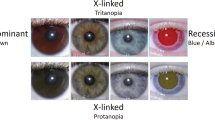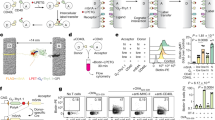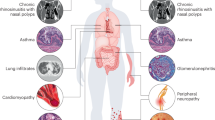Abstract
SOME sheep have high concentrations of potassium in their red blood cells (HK type) and some have low concentrations (LK type)1. The gene for LK (KaL) is dominant to that for HK (kah). Rasmusen and Hall2,3 reported an association between potassium type and an antigen (M) on the red cells of adult sheep. All HK type but only some LK type red cells were M-positive, that is, they were haemolysed by the isoantibody anti-M. They suggested that genes controlling potassium concentrations also controlled the M antigen, sheep homozygous for M (MM) being HK type (kahkah), and sheep homozygous for m (mm) that is M-negative, being homozygous for the gene for LK (kaLkaL). The heterozygous LK sheep (kaLkah) were also heterozygous for M (Mm). The red cells of all newborn lambs contain more potassium than those of adult HK type sheep4,5, and in those lambs which carry the gene for M, the cells do not react fully with anti-M until adult potassium concentrations are reached6,7. The conclusion was that the presence of M antigen per se was not essential for the maintenance of a high intracellular content of potassium, and it was suggested that if the hypothetical m factor could be identified, it might prove to be directly involved in active potassium transport. The work reported here sets out to test this hypothesis.
This is a preview of subscription content, access via your institution
Access options
Subscribe to this journal
Receive 51 print issues and online access
$199.00 per year
only $3.90 per issue
Buy this article
- Purchase on Springer Link
- Instant access to full article PDF
Prices may be subject to local taxes which are calculated during checkout
Similar content being viewed by others
References
Evans, J. V., and King, J. W. B., Nature, 176, 171 (1955).
Rasmusen, B. A., and Hall, J. G., Science, 151, 1551 (1966).
Rasmusen, B. A., and Hall, J. G., in Europ. Soc. for Animal Blood Group Res. Tenth Conf. Paris, 453 (Institut National de la Recherche Agronomique, Institut Pasteur, 1966).
Evans, J. V., and Blunt, M. H., Austral. J. Biol. Sci., 14, 87 (1961).
Drury, A. N., and Tucker, E. M., Res. Vet. Sci., 4, 568 (1963).
Tucker, E. M., J. Physiol., 198, 33P (1968).
Tucker, E. M., in Europ. Soc. for Animal Blood Group Res. Eleventh Conf., Warsaw, 1968 (in the press).
Tosteson, D. C., Moulton, R. H., and Blaustein, M., Fed. Proc., 19, 128 (1960).
Tosteson, D. C., and Hoffman, J. F., J. Gen. Physiol., 44, 169 (1961).
Tosteson, D. C., Fed. Proc., 22, 19 (1963).
Dodge, J. T., Mitchell, C., and Hanahan, D. J., Arch. Biechem. Biophys., 100, 119 (1963).
Ellory, J. C., and Keynes, R. D., Nature, 221, 776 (1969).
Author information
Authors and Affiliations
Rights and permissions
About this article
Cite this article
ELLORY, J., TUCKER, E. Stimulation of the Potassium Transport System in Low Potassium Type Sheep Red Cells by a Specific Antigen Antibody Reaction. Nature 222, 477–478 (1969). https://doi.org/10.1038/222477a0
Received:
Issue Date:
DOI: https://doi.org/10.1038/222477a0
This article is cited by
-
Thiol-dependent passive K/Cl transport in sheep red cells: I. Dependence on chloride and external K+[Rb+] ions
The Journal of Membrane Biology (1983)
-
Interaction of L antibody with low potassium-type sheep red cells: Resolution of two separate functional antibodies
The Journal of Membrane Biology (1982)
-
Inhibition of renal (Na+K+)-ATPase and cation transport by an antibody against NaI extracted kidney plasma membranes
Pfl�gers Archiv European Journal of Physiology (1977)
Comments
By submitting a comment you agree to abide by our Terms and Community Guidelines. If you find something abusive or that does not comply with our terms or guidelines please flag it as inappropriate.



